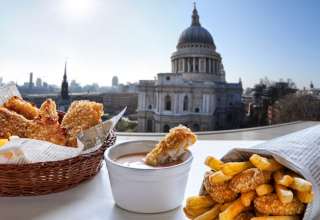Well surprisingly it’s not just about knowing everything about wine. It’s about mental training, being as a fit as an athlete and being able to cope under intense pressure.
Imagine having to walk in to a packed theatre with all the most respected peers in your industry staring at you. Then being asked to walk on to a stage where the very cream of individual talent in your line of work are all lined up to ask you questions, put you off your guard, as you are asked to go through a series of tests to examine all aspects of the skills you have learnt, over many years, of how to do your job.
That’s not even the half of it.
You are then asked to compete head to head with other equally talented individuals who are asked to complete the same tasks live on stage in front of a panel of judges and hundreds of people in the audience.
Those are just the final hurdles you must overcome to be named the Best Sommelier in the World. If it was filmed and put out on prime time TV it would need to go out with a warning that this might upset those of a nervous disposition. High drama, tension and stress does not come more intense than watching the finalists compete in the competition.
What’s more you would have to go through months, if not years, of competition just to get this stage.
Olympic Style Training
Welcome to the world of high-level sommelier competition. So intense is it that some countries even have their own Olympic style coaches who whisk them away for special sommelier bootcamps. These are not just to make sure their wine and spirits knowledge is impeccable, but that they have the mental capacity to be able to cope with the stresses of the final.
This is particularly the case in Scandinavia and appears to be working. For not only is the current Best Sommelier in the World, Jon Arvid Rosengren, from Sweden, there were more Scandinavians in the final world Top 20 than from any other country in the world. And they don’t even make their own wine.
All in the mind
Rosengren told the World Travel Guide that he had been training his mind and his body over the last year of  competition getting himself ready for the World Final that took place in Mendoza, Argentina in April. Being able to pick out tiny bits of information from a whole library of facts, figures, dates, vintages, grape varieties and technical notes is a skill that not the average brain can do without any special training.
competition getting himself ready for the World Final that took place in Mendoza, Argentina in April. Being able to pick out tiny bits of information from a whole library of facts, figures, dates, vintages, grape varieties and technical notes is a skill that not the average brain can do without any special training.
National champion first
But to even get to the world final you will have to win your own domestic Sommelier of the Year competition first. Here’s how it works.
Competing countries, which are as wide and as varied as the Olympic Games, run separate competitions that are open to professional sommeliers and waiting staff working in the restaurant sector.
These include a series of different steps:
Step One
Candidates are initially sent a first round questionnaire which is to test their basic wine and sommelier skills. Only those achieving who score at least 75% will go through to a series of regional finals.
Step Two
Each country hosts separate regional finals where entrants will have to undertake a written paper, a blind tasting and perform some sort of service test. The three highest scoring entries go through to the regional final where they have to complete two further practical service tests and a food and wine matching session. From which a regional winner is chosen.
Step Three
Each of the regional winners and highest scoring runners-up are then invited to their country’s national final. Where they will go through a similar set of tests as in the regional heats before an overall national champion is found.
Step Four
The winning candidates from each country are then invited to take part in the world final, which this year took part in Argentina. Here again they will have to go through a series of rounds whereby candidates drop out at each stage. Leaving a final three to compete in the nerve-wrecking final competition live in front of a packed theatre.
Here’s just some of the tests they then have to do in a final session that can last over an hour each per candidate. They have to:
[lists sio_type=”star”]decanting and pour a magnum of Champagne to a table of guests, that are actually all judges watching your every move.,blind tasting a series of wines and finding the combinations and links between them.,then doing the same for a flight of spirits, looking for a common link between them.,then each sommelier is asked to choose a selection of wines to pair with each stage of an intricate four or five course menu.[/lists]
- they are asked to identify mistakes in different wine lists.
- and then answer a series of questions on famous wine personalities and vineyards
- before finishing off by pouring the exact amount of Champagne in to 16 glasses from a single magnum bottle.
This year’s winner
If you are travelling to New York any time soon then you should head to Charlie Bird in Manhattan where you might be lucky enough to meet the super talented Jo Arvid Rosengren who went through each an every one of the above steps to be named the 2016 Best Sommelier in the World.
Congratulations! You most certainly deserve it.
SO ARE YOU UP FOR THE CHALLENGE? IF YOU THINK YOU HAVE WHAT IT TAKES TO COMPETE THEN CONTACT THE ORGANISERS THE ACADEMY OF FOOD AND WINE.







